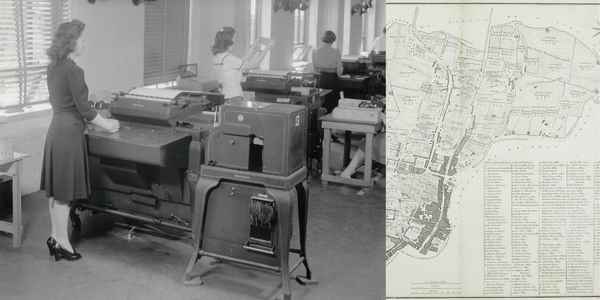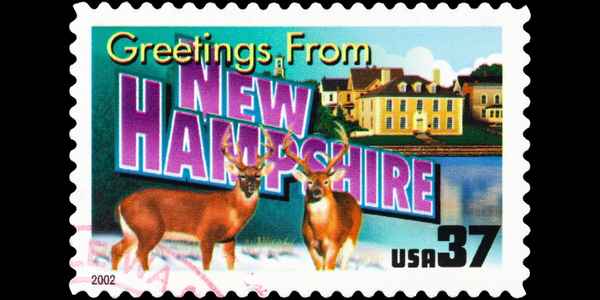This article looks at whether Dwayne is a typically African American first name.
I used census records from the late nineteenth and early twentieth centuries to see how historically popular the name was in black communities.
Of course, the more recent censuses don’t publish full names for privacy reasons. So, I had to look for alternative sources to evaluate the popularity within the last twenty years.
The short answer is that Dwayne has become a typically African American name in recent years. However, it wasn’t a popular choice for black parents historically.
Was Dwayne A Black Name In The 19th And Early 20th Century?
To review whether Dwayne was common amongst African Americans in the 19th and early 20th centuries, I looked at several federal censuses.
The 1870 federal census was taken after the Civil War. This was the first census that counted all African Americans.
There were only six people named Dwayne in the 1870 census, which made it a very rare name in the United States at that time. None of the six were recorded as black.
By 1900, the number had grown to thirty-three residents. Two were black, which is six percent of the total.
One of the black residents was an adult in Philadelphia, and the other was a child in Harrison, Texas. The child’s parents were Levi and Laura.

By 1940, the total number had jumped to 3,734 residents. However, the numbers hadn’t jumped similarly in black communities. With only 17 black residents, the black proportion was about 0.5%.
My conclusion is that Dwayne was a rare name in the United States in the late 19th and early 20th century. It was also an unusual name amongst African Americans.
Dwayne In The 1960s And 1970s
A research study used mortgage applications from 2007 to identify the breakdown of first names by ethnicity.
We can guess that most of the applicants were aged from thirty to fifty. So, the numbers represent people born in the 1960s and early 1970s.
There were 488 people named Dwayne who applied for a mortgage. This was the ethnic breakdown:
- White: 75%
- Black: 23%
But I also spotted less common variants of the name. Here are the black percentages:
- Dwaine: 11%
- Dwain: 16%
- Duane: 6%
- Dewayne: 25%
Compared to the historic census numbers in the previous section, the proportion of Dwayne (and Dewyne) had grown significantly amongst African Americans.
However, the black percentage was still only a quarter of the total.
My conclusion is that Dwayne had grown somewhat in popularity for black parents in the 1960s and 1970s, but was still relatively uncommon.
Is Dwayne A Typically Black First Name Currently?

Several online archives have collected thousands of high school yearbooks from the early 1900s up to 2016.
I used Ancestry.com for my research. First, I ran name searches on three southern states with a significant black population:
- Georgia
- Louisiana
- Mississippi
I used different time frames between 2006 and 2016. I wanted to find at least fifteen students with the name. That meant I had to use different starting points for different states.
The table below is the summary of my review.
The column headed “Dwayne” was the total number of students with the name that I found across the schools with uploaded yearbooks.
| State | Schools | “Dwayne” | Black |
| Georgia | 15 | 22 | 82% |
| Louisiana | 16 | 17 | 71% |
| Mississippi | 9 | 16 | 69% |
There was one black female in the results from Louisiana. As there were two separate pictures of the girl, I don’t think this was a mislabelling.
There was one student in Georgia named Dwayne who was Hispanic.
But as you can see, the name Dwayne was far more likely to belong to African American students in these three states.
My conclusion is that Dwayne has become a typically African American first name in recent years.
What about New Hampshire?

To balance this survey, I also looked at a state with a low black population.
I searched the New Hampshire yearbooks from 2006 to 2016 for anyone named Dwayne.
There were two white students and one black student in the available yearbooks.
Why were there so few schools in this survey?
Of course, there are more than fourteen schools in Louisiana (there are 558 to be exact).
But many schools don’t have yearbooks available online.
The second column in the table shows the number of schools that came up in the results when I searched for the name Dwayne.
It’s also possible that a school has a yearbook online but has nobody by the name of Dwayne. That means the school doesn’t get counted in this survey.
The challenge of using high school photos
If you’ve looked at historic census records in the U.S., you’ll know that ethnicity is one of the questions that people are asked.
This means that the census archives can be searched by ethnicity as well as specific names. However, I could only search the high school yearbooks by student names and school locations.
So, how did I identify African Americans from people of other heritage?
Well, the recent high school yearbooks have photographs of the students. I did it by eye.
I’m not going to be right with every pick. So, treat these numbers as an estimate.